Fall 2017 Environmental Forum
Climate change and climate policy remain highly polarizing topics for the American public. Their discussion is taboo in casual conversation, and constructive exchanges of divergent points of view are extremely rare. How can beliefs about scientific issues be so contentious, so personal and so divisive?
This panel discussion will explore cutting-edge research on the psychology of climate change, and the reasons underlying people’s beliefs about the existence and causes or climate change, and attitudes toward climate policy and solutions. It is abundantly clear that a resort to scientific argument is largely ineffective in engaging people with issues of climate change. Rather, responses to climate change are shaped by a variety of social, political, and psychological factors that need to be understood and addressed if we are to move forward on this pressing issue. This panel will delve into the psychological dimensions of climate change, discuss their political and policy ramifications, and explore paths forward in a political environment showing no signs of bipartisanship.
Friday, September 29 from 2 – 4 pm in Room 310
EVENT IS FREE AND OPEN TO THE PUBLIC -- NO REGISTRATION REQUIRED.
View a live stream of the event HERE.
PARTICIPANTS
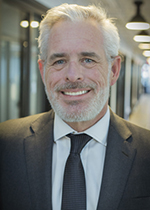 Jerry Taylor, President
Jerry Taylor, President
Niskanen Center
Jerry Taylor is the president of the Niskanen Center. Prior to founding the center in 2014, he spent 23 years at the Cato Institute, where he served as director of natural resource studies, assistant editor of Regulationmagazine, senior fellow and then vice president. Before that, Taylor was the staff director for the energy and environment task force at the American Legislative Exchange Council (ALEC). Over the past two decades, Taylor has been one of the prominent and influential libertarian voices in energy policy in Washington. He is the author of numerous policy studies, has testified often before Congress, and his commentary has appeared in The Washington Post, New York Times, Wall Street Journal, and other prominent print and electronic outlets.
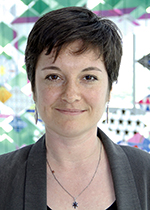 Irina Feygina, Director of Behavioral Science and Assessment
Irina Feygina, Director of Behavioral Science and Assessment
Climate Central
Irina Feygina is the director of behavioral science and assessment at Climate Central, a nonprofit organization of leading scientists and journalists researching and reporting the facts about the changing climate and its impact on the public. Feygina integrates behavioral science insights into these climate communication efforts, and oversees projects ranging from a large-scale collaboration with the National Academies of Science on skepticism of mainstream science to research on the framing of extreme weather attribution messages. Prior to joining Climate Central, Feygina served as a fellow on the White House Social and Behavioral Sciences Team, where she applied insights from behavioral economics to improve program implementation across the federal government, and as an AAAS congressional fellow with Senator Michael Bennet, working on the energy and environment portfolios. She received her Ph.D. in social psychology from New York University, where her research focused on the role of motivated reasoning in climate change skepticism.
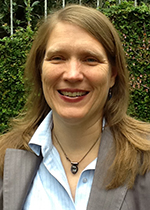 Janet Bowman, Senior Policy Advisor
Janet Bowman, Senior Policy Advisor
Florida Chapter of the Nature Conservancy
Janet Bowman is senior policy advisor for the Florida Chapter of the Nature Conservancy, where she focuses on state governmental affairs. She previously served as legal director of 1000 Friends of Florida, an attorney for the Senate Community Affairs Committee and the Legislative Committee on Intergovernmental Relations, and senior attorney for the FL Department of Environmental Protection. She is chair of the Environmental and Land Use Law Section of The Florida Bar, a member of the Continuing Legal Education Committee of The Florida Bar and a frequent speaker on conservation policy topics. She received her J.D. from the Florida State University College of Law and her B.A. from New College of Florida.
 Janet Swim, Professor of Psychology
Janet Swim, Professor of Psychology
Penn State University
Janet Swim is a professor of psychology at Pennsylvania State University. She has assisted in disseminating information about psychological dimensions of climate change to multiple audiences, most recently as a participant on the United Nation’s Intergovernmental Panel on Climate Change in Ethiopia. She studies environmental engagement with a particular emphasis on how basic psychological and social processes are related to whether, and how the public responds to information about climate change and proposed solutions. Currently this includes the role of knowledge, systems thinking, and hope in responses to science education at informal science learning centers (e.g., zoos, aquariums, botanical centers), stereotypes about others based upon their degree of concern about climate change and the environment, perceptions of costs and benefits from climate change policies, empathy and emotion regulation in response to harm as a result of climate change, and meaningful encounters with nature, such as via eco-tourism.
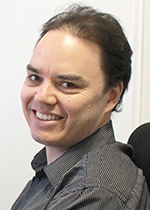 John Cook, Research Assistant Professor
John Cook, Research Assistant Professor
George Mason University
John Cook is a research assistant professor at the Center for Climate Change Communication at George Mason University, researching cognitive science. In 2007, he founded Skeptical Science, a website which won the 2011 Australian Museum Eureka Prize for the Advancement of Climate Change Knowledge and 2016 Friend of the Planet Award from the National Center for Science Education. Cook co-authored the college textbook Climate Change: Examining the Facts with Weber State University professor Daniel Bedford. He was also a co-author of the textbook Climate Change Science: A Modern Synthesis and the book Climate Change Denial: Heads in the Sand. In 2013, he published a paper analyzing the scientific consensus on climate change that has been highlighted by President Obama and U.K. Prime Minister David Cameron. In 2015, he developed a Massive Open Online Course at the University of Queensland on climate science denial, that has received over 25,000 enrollments. John earned his Ph.D. in Cognitive Science at the University of Western Australia in 2016.
MODERATOR
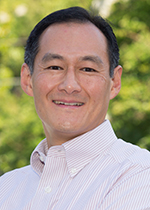 Shi-Ling Hsu, D'Alemberte Professor and Associate Dean for Environmental Programs
Shi-Ling Hsu, D'Alemberte Professor and Associate Dean for Environmental Programs
Florida State University College of Law
Shi-Ling Hsu is the D'Alemberte professor at the Florida State University College of Law and is currently serving as the associate dean for environmental programs. Prior to his current appointment, Hsu was a professor of law and associate dean for special projects at the University of British Columbia Faculty of Law, and also as an associate professor at the George Washington University Law School. Before his academic career, he was a senior attorney and economist for the Environmental Law Institute in Washington D.C, and a deputy city attorney for the City and County of San Francisco. Hsu practiced law with the firm of Fenwick & West in Palo Alto, California. He has a B.S. in electrical engineering from Columbia University, and a J.D. from Columbia Law School. He also has an M.S. in ecology and a Ph.D. in agricultural and resource economics, both from the University of California, Davis. He has taught in the areas of environmental and natural resource law, law and economics, quantitative methods, and property.
2 CLE credits, 1 Ethics credit approved - Course 1705668N
Telephone: 850.645.8749 • Email: jwalsh@law.fsu.edu
